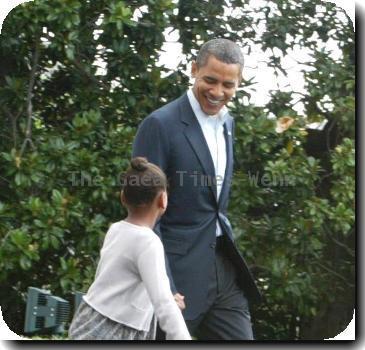Stalemate over Iraq election law threatens delay of January vote, US troop withdrawal
By Rebecca Santana, APThursday, November 5, 2009
Iraq lawmakers can’t agree on election law _ again
BAGHDAD — Iraqi lawmakers failed Thursday to agree on an election law for the country’s January vote, raising concerns the balloting may be delayed and in turn push back a U.S. troop withdrawal.
Iraq’s election law has been stalled for weeks as lawmakers argue over who should be allowed to vote in the oil-rich city of Kirkuk, claimed by both Arabs and Kurds. Lawmakers said they would meet again Saturday. One said it would not be a big problem to delay the January election by a few days.
The ongoing political stalemate in Iraq comes as President Barack Obama decides whether to send tens of thousands more U.S. troops to Afghanistan. Under the president’s drawdown plan for Iraq, all U.S. combat troops would leave Iraq by August 2010, and the remaining 50,000 trainers and support troops would go by the end of 2011.
The bulk of the American withdrawal is supposed to come about 60 days after the planned Iraqi election in January, U.S. commanders have said. However, they have said the plan is flexible, depending on the situation on the ground.
The head of Iraq’s independent High Electoral Commission, Faraj al-Haidari, had warned lawmakers earlier this week that if they did not approve an election law by Thursday’s end, it would be logistically impossible to carry out the vote Jan. 16 as planned.
But after lawmakers said Thursday they had not reached a deal and would meet again Saturday, al-Haidari seemed to backtrack, saying it would be difficult to carry out the vote as planned, but not necessarily impossible.
Iraqi lawmakers have a long history of negotiating down to the wire. Several lawmakers said Thursday they were close to reaching a deal that would allow the vote to go ahead. But it was unclear whether a compromise was in the offing or would fall apart as have other proposals.
“We had a lot of ideas exchanged today, and I think we are close,” said Mahmoud Othman, a Kurdish lawmaker. Othman added it would not be a big problem to delay the January election for a few days.
But Michael Hanna, an analyst with the New York-based Century Foundation think tank, said the longer the debate goes on, the more perilous the situation becomes and the more logistically difficult to print ballots and take other steps to carry out the vote.
He said Iraqi lawmakers genuinely appear to want the elections to go forward, understanding that a delay could undermine the country’s fledgling political credibility, but don’t seem as worried as the United States.
“There’s a greater sense of urgency on the U.S. side, because we’ve more or less pegged our withdrawal to these elections,” Hanna said.
A U.S. Embassy spokesman, Philip Frayne, said the U.S. would like to see a deal “that works for all sides, so that the Council of Representatives can pass an elections law in time to keep to the January date for holding elections.” That is parliament’s official name.
Kirkuk, the sticking point in the election law, has been a source of controversy for decades.
Under former dictator Saddam Hussein, tens of thousands of Kurds were forcibly displaced under a plan to make Kirkuk predominantly Arab. After the 2003 U.S.-led invasion of Iraq, many Kurds returned. But now other groups claim their numbers are even greater than before Saddam evicted them.
That history makes Kirkuk an intensely symbolic city for Kurds, who consider it their “Jerusalem.” The issue is also complicated by the fact that whoever controls the city will also control the vast oil fields on its edges.
The Arab-led central government vehemently opposes anything that would remove Kirkuk from its control. A referendum on the city’s future, required by the constitution, has been repeatedly postponed.
The immediate dispute centers on who can vote in Kirkuk in the the January national election.
________
Associated Press writer Qassim Abdul-Zahra in Baghdad contributed to this report.
Tags: Baghdad, Barack Obama, Iraq, Local Elections, Middle East, Ml-iraq, Municipal Governments, North America, United States

